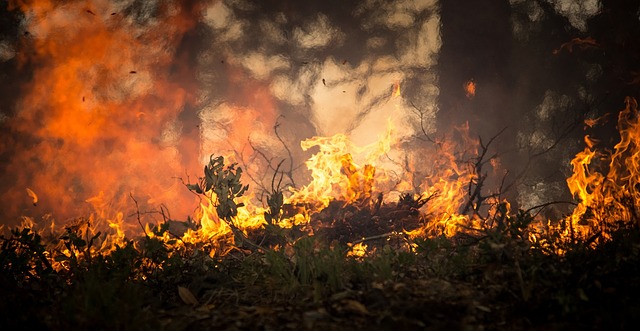A wildfire, also known as forest fire, is essentially a huge, destructive fire occurring in forests, woodlands or brush. Doing all justice to the saying “spread like wildfire”, forest fires spread extremely quickly, taking over large areas of wilderness and reducing them to ashes. In most cases, wildfires are impossible to put off, which is why it is a common occurrence for certain forest fires to rage uncontrollably for days in some parts of the world. 90% of wildfires today are caused by human negligence, for example smoking, burning debris is forests, unattended campfires or even arson. Natural causes like lightning and volcanic eruptions can be held accountable for the rest 10% of forest fires. While it is obvious that wildfires are extremely destructive and harmful, they also happen to some positive aspects, both natural and economic. Some of the pros and cons of forest fires are as listed below.

Positive effects of Wildfires:
• In a lot of thick forests, there is obvious overgrowth of trees, from the ground vegetation to high rising trees, hence resulting in more competition for soil nutrients and water. Surprising as it may sound, a forest fire is beneficial in providing fresh nutrients in the soil for a new generation of vegetation. The nutrients from the burning vegetation return to the soil, making it somewhat more fertile. As a fact, the extreme heat from the fire is required for the germination process of certain plants.
• One of the biggest positive effects of wildfire is that it helps decrease disease insects. In fact, more trees are killed every year by insects than forest fires. A low intensity forest fire actually helps the forest in its struggle against infestation, which could even cause a bigger forest fire later. This is true in case of diseases affecting humans as well. Forest fires help eliminate a number of diseases insects that would have otherwise spread into human habitation.
• A forest fire helps form fresh new habitat zones from old, dying forests. Marginally decreasing the overgrowth in a forest makes way for more water, nutrients and healthier food sources for the animals. The new micro habitat or ground cover that grows after the fire is more healthy and fresh.
• It is a well-known fact that in thick forests, the canopy of tall trees blocks the sunlight from reaching the forest floor, often leading to perishing of vegetation growing on the lower heights of the forest. A wildfire is helpful in this aspect, since it clears out the canopy, letting sunshine into the forest and helping the ground vegetation and small plants grow.
Negative effects of Wildfires:
• The biggest negative impact of forest fires in obviously the casualties caused, especially lifesavers and fire-fighters. An extreme forest fire leads to destruction of property and loss of lives of hundreds of people, before it is brought under control.
• It goes without saying that major wildfires cause irreparable damage to flora and fauna, throwing the entire ecosystem off balance. Fire forces the animals out of their habitat, even killing some. By altering the adaptable and habitable land for certain plant and animal species, a forest fire also increases the risk of extinction of such organisms.
• Besides having the above negative effects on the environment, forest fires also adversely affect the air quality of the area surrounding the forest. As we all know, trees as act a natural air purifier by absorbing carbon dioxide and other greenhouse gases. Not only does a wildfire decrease the number of trees, but it also adds more impurities into the atmosphere in the form of smoke and dust. This degrades the air quality and can even cause respiratory diseases in people living in the vicinity of the forest.
• The forest vegetation is known as watershed protector as forest water-tables are a major source of water in some parts of the world. A forest fire can be detrimental to the forest water table, leading to an alteration in connected streams and even rivers.
• A wildfire causes immense economic loss. Millions are spent in effort to extinguish the fire then in damage mitigation that includes rebuilding and rehabilitation of that area. Many a time, such wildfires occur in agricultural lands, leading to destruction of all the crops and hence unimaginable economic loss.
Having stated the positive and negative effects of forest fires, it is safe to say that some benefit can be derived by executing low intensity, controlled fires in certain forests. In fact, certain wildlife parks use this technique to improve the quality of nature without causing extreme harm to the environment.




good article